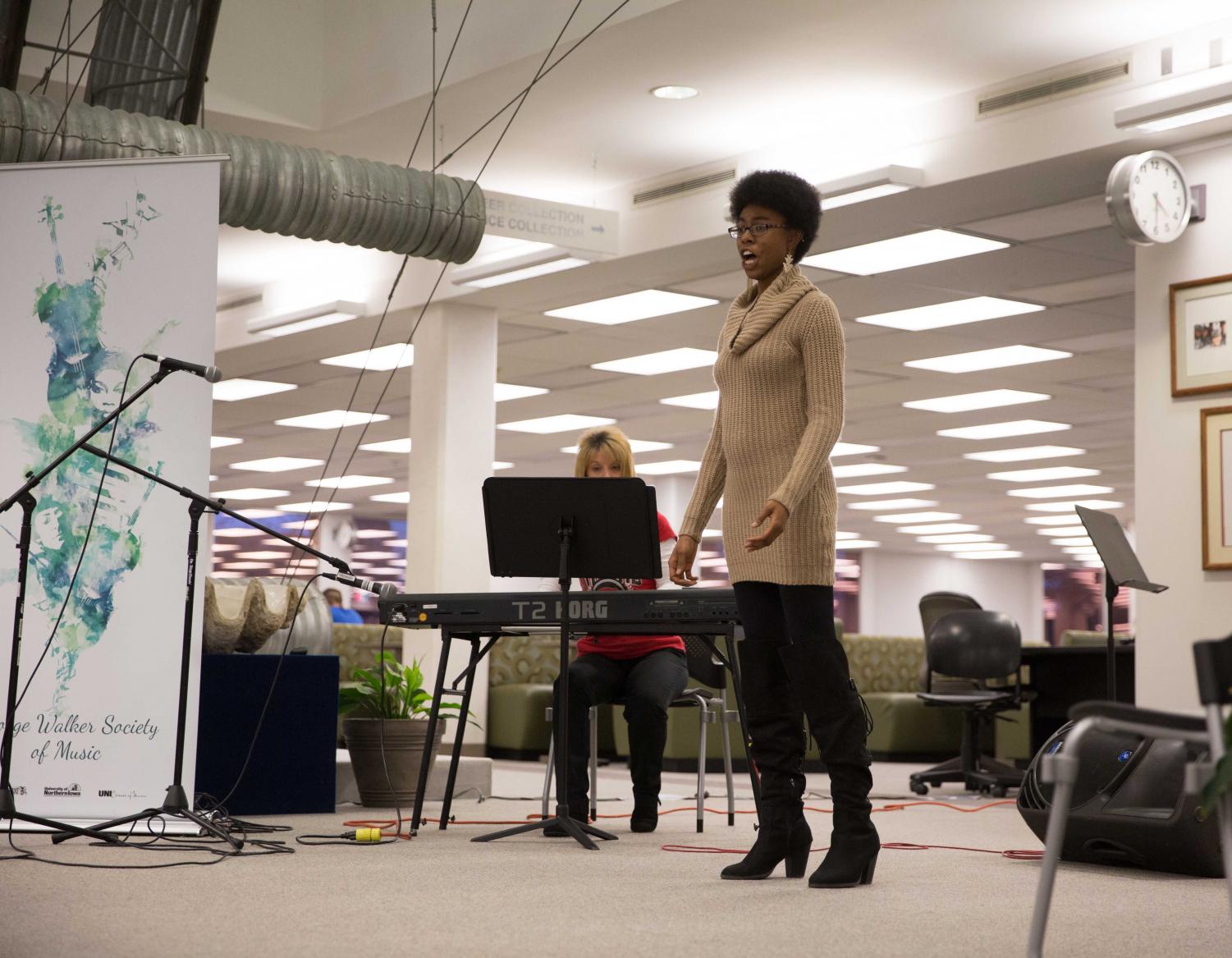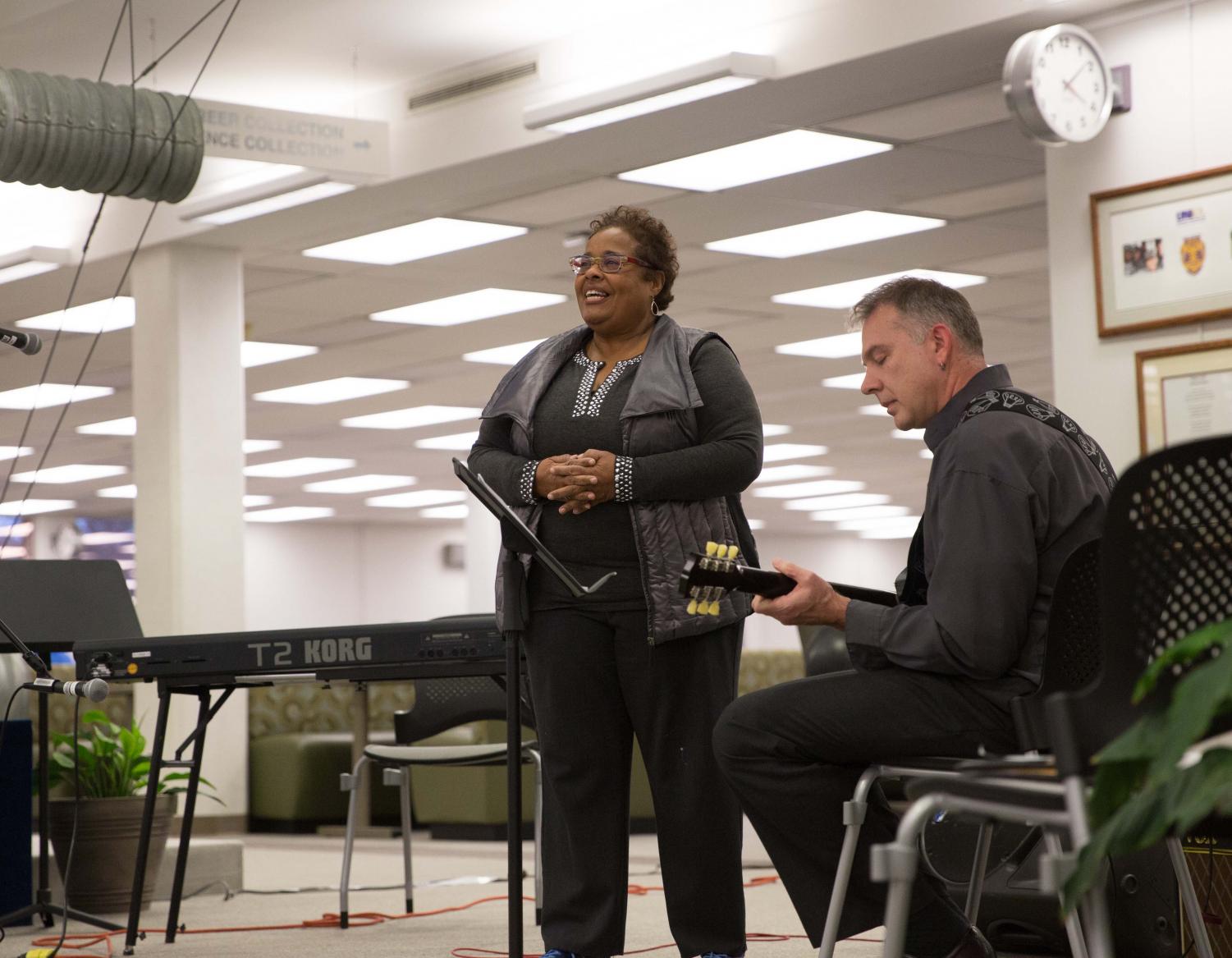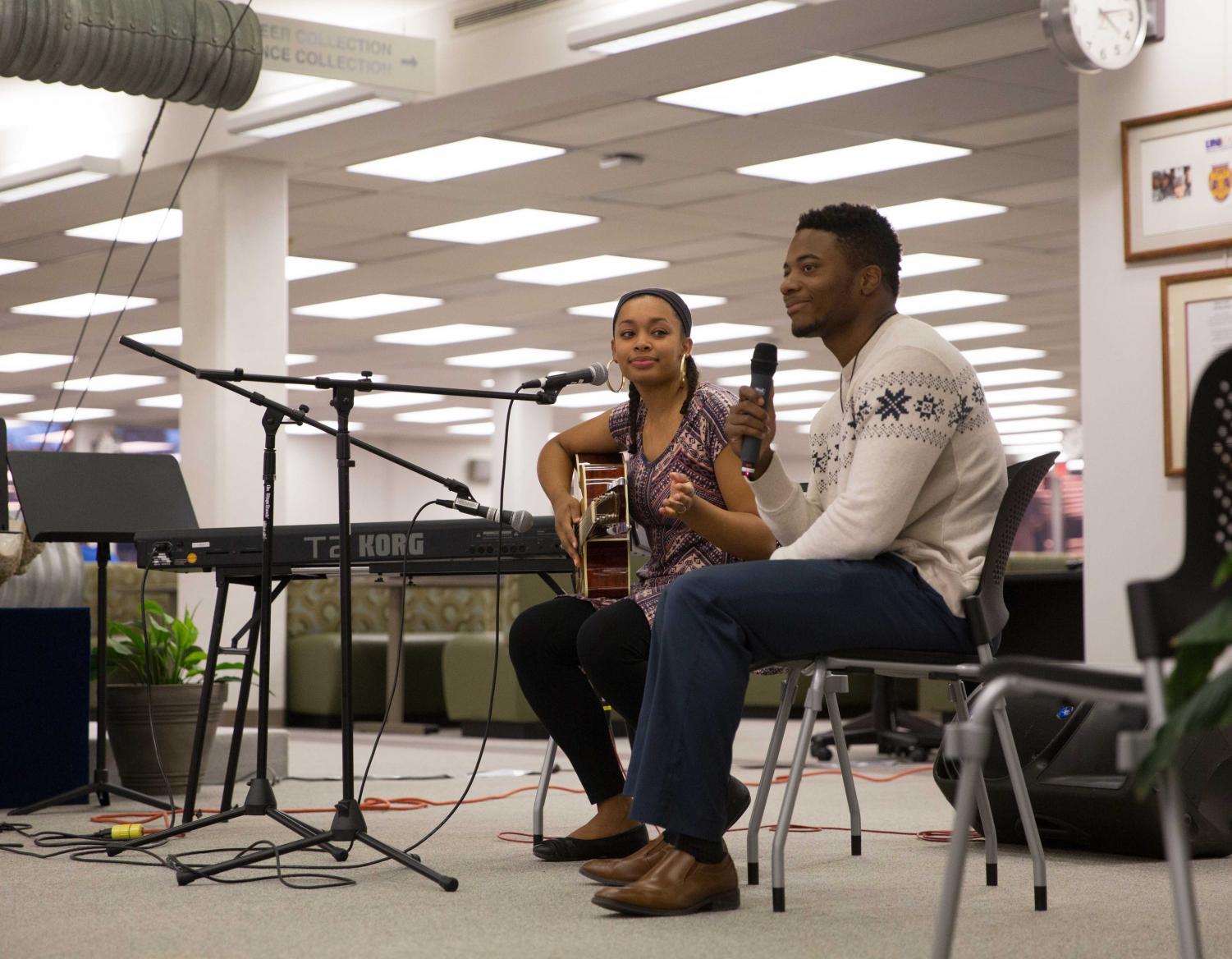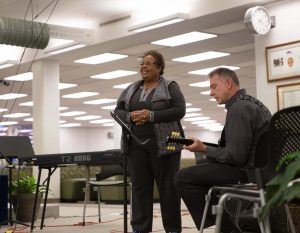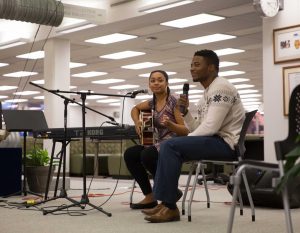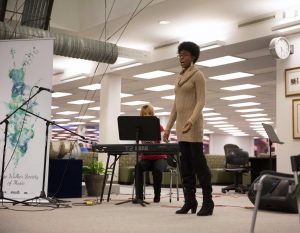Celebrating jazz legends Fitzgerald and Monk
Nov 13, 2017
A blend of jazz and modern music filled the stacks of Rod Library this past Friday, Nov. 10, as the George Walker Society of Music celebrated the 100th birthdays of Ella Fitzgerald and Thelonious Monk, both born in the year 1917. Although these musicians have since passed, they still have lasting significant contributions to music and history.
The centennial celebration of Fitzgerald and Monk was held on the main floor of the Rod Library and featured UNI undergraduates and graduate students, as well as faculty members, paying tribute through covers and original compositions with vocal and instrumental pieces, including the use of saxophones, piano, guitars, flute and a cajon.
“[Monk was a] very complex and deep-thinking composer that also pioneered modern jazz,” said Celeste Bembry, the advisor to the George Walker Society of Music and the student recruitment and retention coordinator for the College of Humanities, Arts and Sciences. “He broke rules, and he expressed things differently [. . .] It moved jazz into these different branches of modern jazz.”
Shannon Jones, a sophomore music education major, was the primary student organizer of the group. Her musical contributions to the program included vocal and guitar to a cover of “They Can’t Take that Away From Me” and vocals to a cover of Ed Sheeran’s “I See Fire.”
Although Jones admitted to not having been familiar with Monk before preparing the show, Fitzgerald has heavily influenced her music preferences.
“I love the style that Ella has and how much passion she puts into music,” Jones said. “That’s something I want to be able to convey in music as well.”
Bembry opened the show singing Nat King Cole’s classic “Nature Boy.” Jones’ musical contributions to the program included vocals and guitar to a cover of “They Can’t Take That Away from Me,” a duet with Marcus Jackson and vocals to a cover of Ed Sheeran’s “I See Fire” (in which she was also accompanied by Jackson).
Monk’s classics “Blue Monk” and “Round Midnight” were covered by Azeem Ward on flute, Colton Kurtz on guitar and Gerardo Gomez on saxophone. Gomez and Curtz also contributed to the saxophone quartet alongside Denzel Washington and Jonathan Green; the quartet played Scott Joplin’s “Peacherine Rag.” Classical composer Florence Price’s “Night” was covered by Athena-Sade Whiteside on vocals and Dyan Meyer on piano. For a more modern performance, Sara Bareilles’s “King of Anything” was covered by vocalist Ryan Frank and pianist Mollie Sherman with Dan Noonan-Day on Cajon.
“Even though [all] the presentations are not specific to [Fitzgerald and Monk], we wanted all students to come to offer their gift in honor of these composers,” Bembry said. “All of it pays homage to these iconic figures.”
Two original works by students were also featured. Washington, a first-year grad student getting his masters in music composition, composed “Gerardo’s Very Happy Quartet” for the show.
“This song is very special to me, because my friend Gerardo over there — the amazing alto sax — he wanted me to write a piece for him,” Washington explained. “And his only request was that it would be titled ‘Gerardo’s Very Happy Quartet’ in honor of Professor Chris Merz’s ‘Christopher’s Very Happy Band’.”
Prior to the event, Washington admitted to being nervous because this was the first original composition he would be performing in Iowa. Washington received his B.A. from Mercer University and came to Iowa for the first time to get his masters.
“It’s a challenge when you’re sitting there, and you hear all these great standards that have been popularized and everyone knows and then you have new music that’s never been heard before,” Washington said after the show. “There’s a bit of a scariness in there. Will it stack up amongst the standards? And I think it did its work. It was respectable.”
The other featured original work was written and performed by Jackson on piano with and vocals. The piece was entitled “Can’t Let Go.” This was a last minute change to the program.
When the celebration concluded, Jones said she was pleased.
“There were a few last-minute issues with the microphones and the kind of piano that we had, and a lot of us were coming from class at 3:30, so we had a short amount of time to set up,” Jones admitted. “Despite the small technical issues, I think it went extremely well [. . .] The turnout was really great. I wasn’t expecting this [many] people.”
Bembry also invited the audience to come to the Motown review that will be happening in February and will also be hosted by The George Walker Society of Music.
As Bembry explained, the George Walker Society of Music is a college branch of the National Association of Negro Musicians; it is the only branch in Iowa. The organization promotes African-American compositions, including symphonic and orchestral works, as well as negro spirituals.
“We are advocates for African-American composition and composers of the highest regard,” Bembry said.


